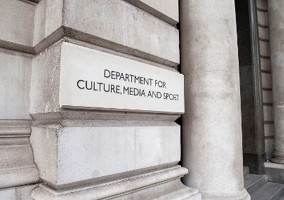The sector is sadly back in the spotlight. After the safeguarding scandal, charities are being asked to prove, once again, that they do not have feet of clay.
A stock answer is that we need greater accountability and transparency, and I think this is true, but I’m also not clear that we necessarily really know what this means.
It’s not more disclosures to the end of the annual accounts. Accounts are very useful tools, which require charities to honestly record a lot of information, and are excellent for funders and researchers and regulators.
But they’re adapted from a framework meant for companies, so they say lots about where money goes, and little about what people want to know: are you honest, and are you doing something useful?
Recent research shows this is a real problem to be addressed. A focus group with donors run by consultancy Bluefrog revealed a fundamental bafflement at how charities operate. Another by nfpSynergy similarly reported a lack of ability to engage with charity accounts.
Baroness Stowell, the incoming chair of the Charity Commission, has declared it one of her top priorities to increase public trust in charities. Her perspective is that charities, rather than changing how they explain themselves to the public must understand their stakeholders’ wishes, and respond accordingly.
My hackles rise instinctively at this, because the idea that the public knows best doesn’t sit well with me. The problem, as seen in the two pieces above, is that the public knows very little, so following their wishes won’t help us help people.
But on the other hand, it is absolutely true that charities must have better mechanisms to hold themselves to account to the public. Particularly beneficiaries and donors, but also the people at large.
I suspect many charities don’t especially feel they ought to be answerable to the wider public. But charitable status is a great gift, and comes with tax breaks worth £5bn and significant reputational benefits. If you hold that status you have to be answerable to all the people – even the people who read the Daily Mail.
Accountability gap
There’s no doubt there’s an accountability gap. There’s no single mechanism to hold charities to account. Unlike government, charity leaders can’t be voted out. Unlike schools and hospitals, charities aren’t subject to regular inspections from people who can shut them down. Most charities don’t have customers who can vote with their feet. (Although those with donors are at least answerable to them – too answerable, sometimes.)
There’s a transparency gap, too. Reports and accounts are largely impenetrable, and most charities proactively communicate with most stakeholders only when they want something, when inevitably they are inclined to err to one side of the truth. Charities overpromise, push down their core costs to tell a good story, and put too much emphasis on the new and exciting, rather than what works.
Given these limitations, charities are surprisingly well held to account, and surprisingly efficient and good at responding to feedback – perhaps because people care so much about them, and because charities are so driven by their cause.
How to change it?
One strand of the battle is communication. Karl Wilding of NCVO writes powerfully about this, asking the sector to tell its story clearly, and I agree wholeheartedly with NCVO’s excellent guide on this subject.
But I tend to think that if we want to change the results, we should change the system. We need to identify what people need to know, and work out how to reach them with that information. Then work out how, if they don’t like what they hear, they can do something about it. Then change the system to incentivise charities to respond to this need.
I’ve outlined some ideas which might help, below – some of which I’ve written about in more detail before. These aren’t the only answers, or necessarily even the right ones. I’d be keen to hear others.
Assess charities’ public benefit
The public want to know that charities are effective. They want to know the benefit their money delivers. Who do you help? How do you help them? What did you promise to do last year and did you do it?
But we don’t ask charities to report on it. The reporting regime focuses almost entirely on money, and barely mentions public benefit.
All charities with incomes over £1m should be able and eager to answer questions about their effectiveness. The answers should already be in the KPIs presented to the board.
Charities should produce a couple of pages of their goals, and year-on-year comparators. We should send someone qualified to inspect this data, each year, and assess its honesty. Then they should confirm, like an auditor, that this is a true and fair representation of the charity’s actions, and that the charity is achieving meaningful public benefit.
Rank charity effectiveness
I think we need to make some kind of statement about which charities are best. Let's take the key financial and non-financial figures we collect and build something that shows which organisations are doing a good job. It will be subjective, of course, but in its absence, we will get arbitrary rankings cooked up by The Sun or the True & Fair Foundation.
One model is Charity Navigator in the US. This has weaknesses and again it would need to be paid for, but I cannot see that replicating it in this country could possibly be bad.
I’d also like to an Institute of Charity Effectiveness, to actually help charities gather evidence on what works. But that’s really for another piece.
Inspect charities
In the end, charities are answerable mainly to regulators. So increased accountability requires increased regulation.
At the moment, the Charity Commission will only step in if you’re in breach of the law – a very low bar. In other sectors, regulators address whether you’re effective, and it could be argued we need that with charities, too.
The UK charity sector has a turnover of anything between £50bn and £90bn, depending on how you look at it. This is comparable to the amount spent annually in the UK on education, but Ofsted has a budget of around £170m - six times that of the primary charity regulators.
There are 400,000 charities in the UK, working across the globe, often with the most vulnerable individuals. We need better protections for volunteers and better safeguarding. And probably we need Ofsted-style inspections for any charity which works with vulnerable people, and isn’t already inspected by another regulator.
To sum up…
The public don’t think charities operate how they ought to operate. Nor do they know how charities actually operate. Charities need to communicate better, and to make it clearer that when there are problems they will respond. This means changing some systems.
We need to incentivise or mandate charities to deliver simple, understandable information to the public about what they do, which allows us to identify a problem early, and give feedback which allows it to be fixed. Preferably without the intervention of The Times and the Daily Mail.
|
Related articles











